The Best Skills for Children to Learn in 2025
The Best Skills for Children to Learn in 2025
Introduction
It is necessary to arm our children with the right life skills for students for attaining success in today's fast-developing world. Just like a restaurant updates its menu card, adding new cuisines, the education and job sectors update the required skill sets.
Learning these skills are important for the children as they go beyond traditional academics. This article will explain all the life skills for students that your child must learn in 2025 in order to excel in any career. Let's dive into the ten best skills children must learn in 2025.
1. Coding
Coding is the number one skill that a child must learn in 2024. Coding has numerous benefits for children and adults alike. It sharpens their technical abilities and helps them develop problem-solving skills that are crucial for building critical thinking and resilience. It also develops computational thinking and logical reasoning and makes math fun for children. For younger learners, the best apps for learning to read can complement coding activities, as they both foster cognitive and language development in an engaging way.
The importance of learning this skill is also highlighted by research which shows that coding enables social, emotional, mental and language development in children which are fundamental for our future engineers or software developers and also helps them to acquire symbolic language.
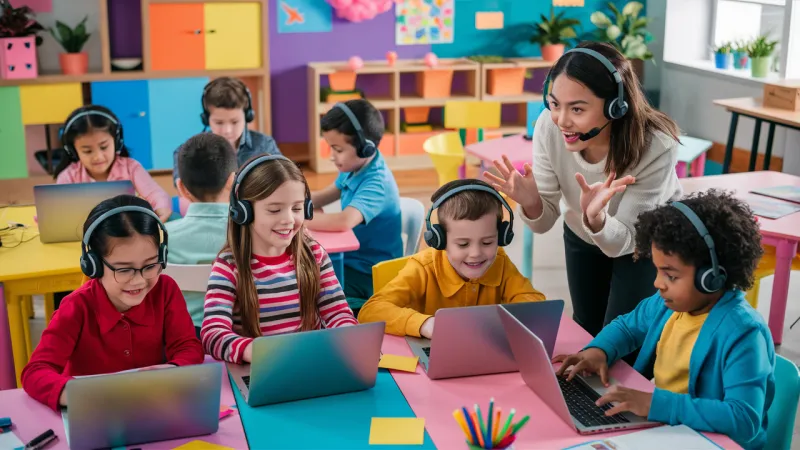
Popular programming languages for kids
Scratch: Scratch is a visual programming language designed for children. It allows them to create interactive stories, games, and animations, making it an excellent starting point for young coders.
Python: Python is a versatile and beginner-friendly language. Its simple syntax and readability make it a popular choice for kids who are ready to move beyond visual programming.
Best platforms for kids to learn coding
There are various excellent platforms for kids to learn coding. They include:
Codeyoung: It offers personalized and interactive classes for kids. It focuses on building a strong foundation in programming through engaging and informative lessons.
Code.org: It provides a variety of courses and resources for students interested in learning coding, including Hour of Code activities.
Tynker: It offers a fun, gamified platform that teaches coding through exciting projects and games.
2. Financial Literacy
Learning financial literacy for kids is highly important in 2024. Financial literacy is the ability to understand and handle money judiciously. It includes personal money management, budgeting, and investing. It's one of the essential life skills for students that lets your children make informed and wise decisions with their limited financial resources. This helps them understand the value of money and they learn how to invest and save money wisely. In addition to financial literacy, it's important to introduce children to the best apps for learning to read, as literacy skills provide a foundation for understanding various financial concepts.
Importance of understanding money management
Research has shown that school-going children lack financial literacy which put them at a risk of poor money decisions later in life. Even half of the US adults lack financial skills. Hence, teaching money management to children is all the more important to prevent them from making bad financial decisions and falling in debt. It allows them to make valuable use of available money and attain financial stability as they enter into adulthood.
Teaching kids about money management- saving, budgeting and investing- is crucial for their future financial success. Starting financial education at a young age helps children internalize these skills, boosts their confidence, and lays a strong foundation for future financial decision-making and entrepreneurship.
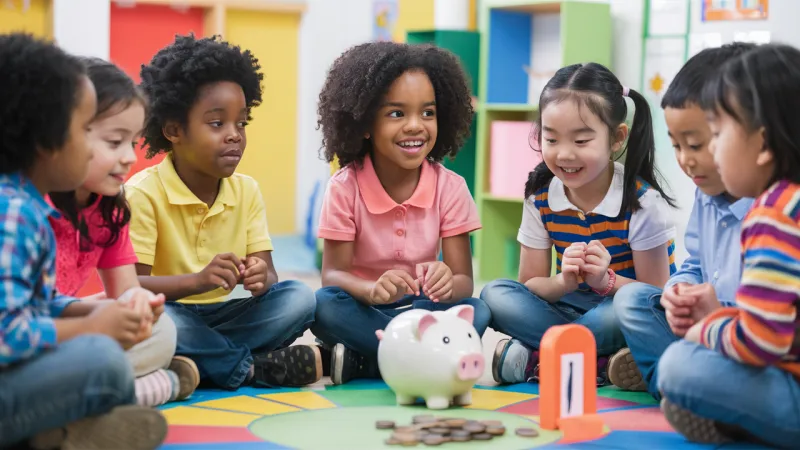
Ways to learn financial literacy
Some of the best and engaging ways to learn financial literacy are:
Piggy banks: Getting a cute and cool piggy bank and making your children put pocket money in it, is a simple and effective way to teach them save money and set small financial goals.
Real-life practice: Involving your children in home budgeting exercises, shopping and setting goals is an exciting and practical way to make them learn about money and how to use it thoughtfully.
Interactive learning: Making your kids use games and apps like Savings Spree and BusyKid is another great way to teach them money management in a fun and interesting way.

Best platforms for kids to learn financial literacy
There are many great platforms for kids to learn about money. They are:
Codeyoung: It offers amazing financial literacy courses that teach kids about money management, budgeting and investing through personalized and dynamic lessons.
Bankaroo: It is a fun platform designed to teach kids about finances through a virtual bank where they can track their savings and expenses.
Khan Academy: It provides free courses on money management divided into various topics, making it another best way to learn financial literacy.
3. Critical Thinking and Problem-Solving Skills
Another set of life skills for students to learn are critical thinking and problem-solving skills. They are instrumental for the academic and everyday success of your children. These skills help children analyze information carefully, make good decisions, and solve problems in a better way. They also nurture independence and prepare children for difficult challenges they may encounter in their personal or professional life.
These skills not only boost self-esteem and self-sufficiency but also set kids up for happiness and productivity later in life. Proper guidance in learning these skills prepares children for real life as adults.
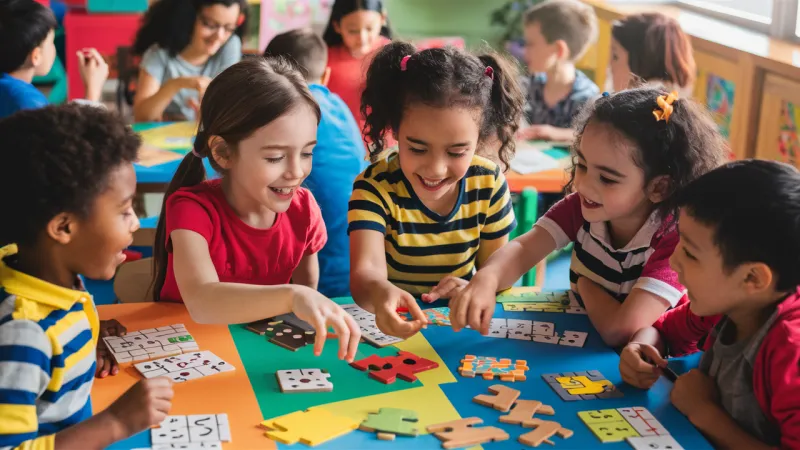
Best ways to boost critical thinking & problem-solving skills
Here are some of the best and fun ways to develop these important skills:
Puzzles and brain teasers: Making your children participate in interesting puzzles and brain teasers will develop their critical and analytical skills. Activities like Sudoku, jigsaw puzzles and crosswords put children in deep thinking, challenge their minds and sharpen their pattern recognition.
Strategic games: Encouraging your children play strategic games like chess, checkers and board games (Settlers of Catan, Risk) sharpen their critical thinking. These games demand thoughtful planning, tricks, and adaptability that help children think and devise clever strategies to win.
STEM projects: Motivating children to participate in science, technology, engineering and math (STEM) projects help them in applying critical thinking and comflict-solving abilities in real life situations. When they build models, do experiments and involve in robotics; they nurture their skills in a fun way.
4. Creative Writing
Creative writing is one of the vital skills that a child must learn in order to communicate effectively. It not only helps in improving communication skills, but allows children to express their emotions and thoughts smoothly and expand their imagination. In fact, a study revealed that creative writing improves one's mental health and overall psychological well-being.
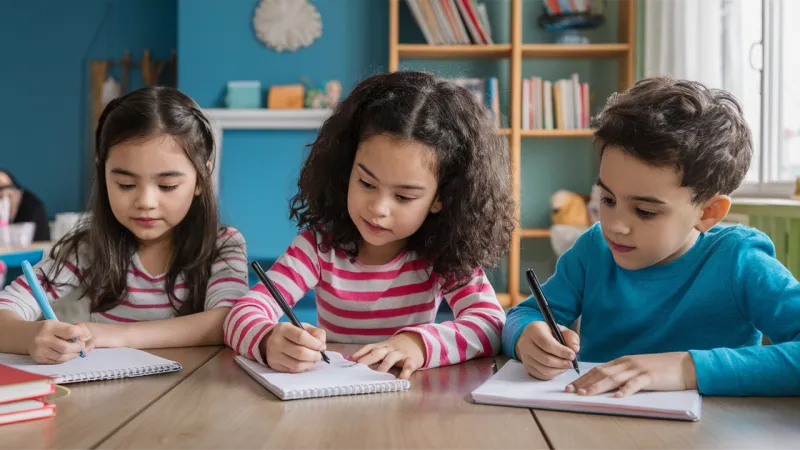
Ways to improve writing skills in children
Some of the captivating methods to improve creative writing skills are:
Encourage daily writing: Motivate your children to write regularly, be it journaling their day, making their own stories or creating a random poem.
Use writing prompts: Brainstorm a bit and provide your kids some interesting prompts daily so that they engage in thinking and creating amazing stories.
Read regularly: Whether it's a daily newspaper, a magazine or a novel, encourage kids to read a variety of stuff to expose them to various styles of writing and genres.
Best platforms for creative writing
Some of the best platforms to learn creative writing are:
Storybird: It is a platform that allows kids to create various stories using artwork and templates that polish their storytelling and creative skills
Writer Igniter: It is a great platform that generates a ton of writing prompts with a mere hit and spin! It provides a new character, situation and plot setting, useful for sparking and creating amazing stories.
5. Public Speaking
75% of people suffer from Glossophobia- fear of public speaking but it is an essential skill that students must learn to make a fascinating career especially in the USA or Canada. It's no longer considered a soft skill but a fundamental talent necessary to boost a career value. No, it's not us claiming it. It has been pointed out by the world's most popular billionaire- Warren Buffet.
Learning public speaking offers many benefits. It builds confidence in a child, helps them express any idea clearly, and talk with others persuasively. It also leads to career advancement and personal satisfaction. Moreover, learning public speaking contributes to overall life skills for students, preparing them for a variety of challenges in their personal and professional lives. Children are also able to develop presentation and communication skills, which are key elements in their growth.
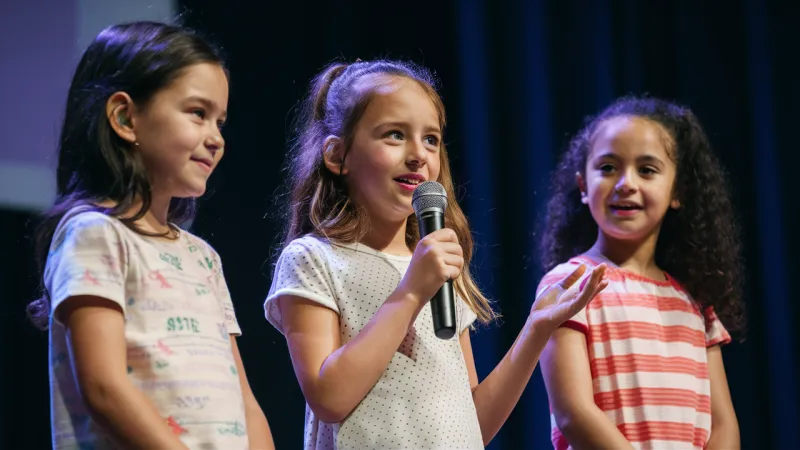
Ways to improve public speaking among children
Some of the fruitful ways to improve your child's public speaking and communication skills are:
Practice regularly: Encourage children to practice speaking daily in front of their family members, friends or in a classroom. This will improve their speaking skills and instill confidence.
Join workshops and clubs: Enroll your kids in clubs or workshops dedicated to public speaking like Toastmasters for Kids, where they can learn this significant skill in a supportive place.
Use visual aids: Teaching kids to use aids like posters, slides or props will help them stay on track while they deliver their presentations. It will also make their speech more engaging.
Best platforms to learn public speaking
Some of the good platforms that can help your child develop excellent public speaking skills are:
Codeyoung: It offers courses that help children learn the basics of public speaking and communication skills and ultimately prepare them to become the best speakers.
Toastmasters: It has a program for kids that helps them learn and practice public speaking and leadership skills in an encouraging environment.
6. Digital Literacy
Starting digital literacy education at an early age is crucial for children to step into the digital world safely. This early exposure can greatly boost a child's confidence and efficiency in using digital tools. This skill is important for children, particularly in the United States and Canada, where technology is ingrained into every aspect of life. Digital literacy is not just about how to use a computer but a valuable skill that helps kids to explore, analyze, and use digital technology in a responsible, safe, and ethical manner. Additionally, life skills for students, such as critical thinking and problem-solving, are reinforced through digital literacy. Moreover, parents can leverage the best apps for learning to read, which can complement a child's digital education by improving their reading and comprehension skills in an interactive, engaging way.
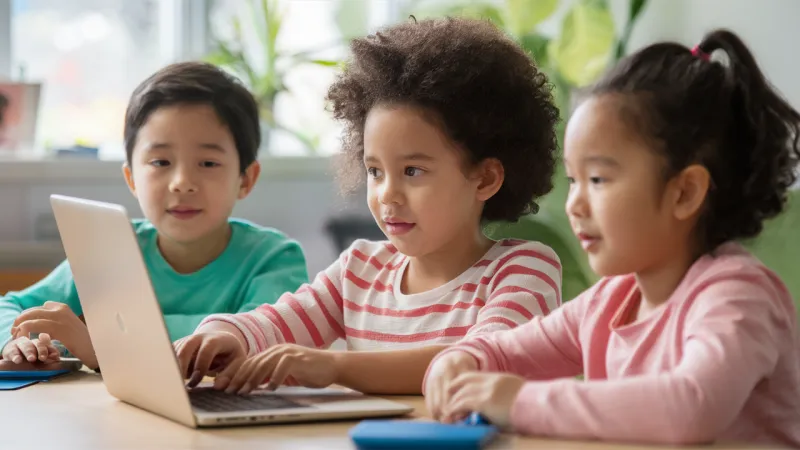
Ways to boost digital literacy
Some of the ways to boost your kids digital literacy skills and turn them into responsible digital citizens are:
Hands-on experience: Encouraging your kids to use various digital tools and platforms like coding, online projects, digital storytelling will develop their practical skills.
Interactive learning platforms: Letting your kids use educational websites and apps that give them meaningful lessons on digital literacy is another great way to improve their technological skills.
Parental and educator guidance: Providing guidance on how to use the internet technologies safely and ethically will help kids learn digital etiquette, online privacy, and critical evaluation of online information.
Best platforms to learn digital literacy
Some of the platforms where kids can learn digital literacy are:
Learning.com: It offers an interactive curriculum for kids on digital literacy, online safety, computer coding, etc.
Be Internet Awesome: It is an interesting and helpful program designed by Google that teaches the fundamentals of digital citizenship to kids through fun and exciting games and activities.
7. Emotional Intelligence
Emotional Intelligence (EI) is another important life skill for students for better child development. It enhances their ability to handle emotions, build healthy relationships, and take responsible life decisions. In fact, studies show that the better predictor of one's success, in both personal and professional life, is no longer IQ (Intelligence Quotient) but rather EI. Students can better handle stress, talk effectively, face future challenges boldly, prepare for job interviews confidently and overcome difficult social situations by sharpening their EI.
Ways to improve emotional intelligence in kids
Some of the helpful ways to improve your kids emotional intelligence are:
Emotion coaching: Teaching your kids to identify and name their emotions and guiding them on how they can express and handle these emotions will help them to develop empathy and talk about their feelings openly.
Mindfulness practices: Encouraging kids to participate in meditation and deep breathing will help to become aware of their emotions and regulate them properly.
Social skills training: Allowing your kids to talk with peers in various settings like group projects or games will help them practice empathy, active listening and conflict resolution skills.
8. Foreign Languages
Learning a second language is an important life skill for students that not only enhances cognitive abilities but also promotes cultural awareness and empathy. It opens up hundreds of opportunities for personal and professional growth, making it a valuable asset in today's globalized world. Learning a second language is one of the most important life skills for students as it enhances your kids' ability to interact with others through clear communication, good manners, and being a good listener.
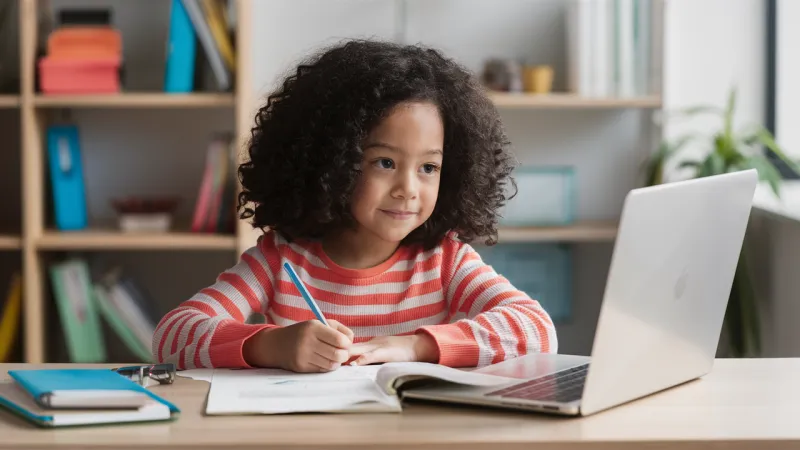
Popular languages for kids to learn in 2025
As our world becomes increasingly interconnected, certain languages are gaining popularity due to their economic and cultural importance. The top languages to learn in 2025 that offer a competitive edge in various fields are:
Spanish
Mandarin
French
Resources and apps for language learning
There are multiple resources and apps available to facilitate language learning. Some platforms that provide interactive and engaging ways to let your kid master a new language are:
These tools are designed to cater to different learning styles making sure that everyone can find a method that works best for them.
9. Environmental Awareness
It's important for children to learn about the environment and sustainability. This skill and knowledge imbibe concern and care towards the environment, natural resources, ecological issues among students, and prompt them to work for a sustainable future. Incorporating life skills for students such as problem-solving and critical thinking further enhances their understanding and approach to addressing environmental issues. Environmental awareness creates critical and analytical thinking about the impact of humans on the surroundings.
In fact, in the US and Canada, sustainability education is becoming an essential life skill due to the increase in environmental challenges these countries are facing, like climate change, habitat destruction, and pollution. This awareness is important for students for creating a culture of sustainable practices and addressing environmental problems at both regional and global levels. Additionally, using tools like the best apps for learning to read can help young learners better understand sustainability concepts and their importance in everyday life.
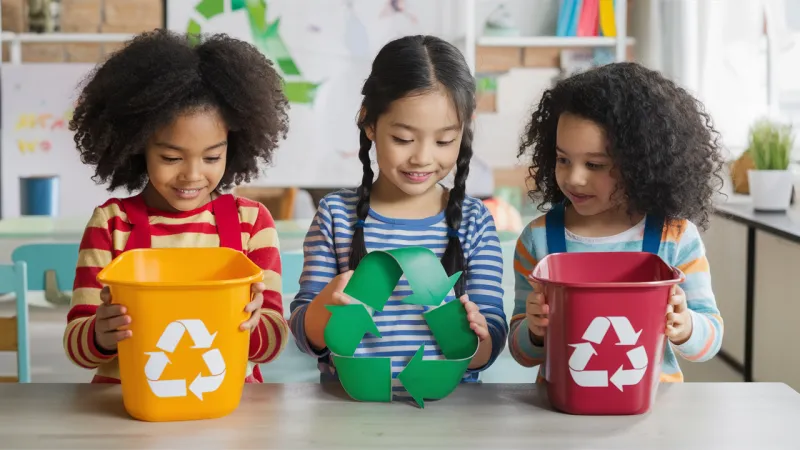
Ways to improve environmental awareness in kids
Some of the helpful ways to improve awareness related to the environment among kids are:
Environmental activities and projects: Engaging children in activities like planting trees, clean-up drives or recycling tasks will help them understand the effect of their actions on the environment and the importance of conservation.
Eco-friendly habits: Teaching them eco-friendly and sustainable habits, for example, saving electricity and water, using organic items, separating the kitchen waste will allow them to inculcate these good habits from an early age.
Nature exploration: Organizing nature walks, hikes, or visits to wildlife sanctuaries or parks for students will develop a deep appreciation for nature, biodiversity and natural habitats in them.
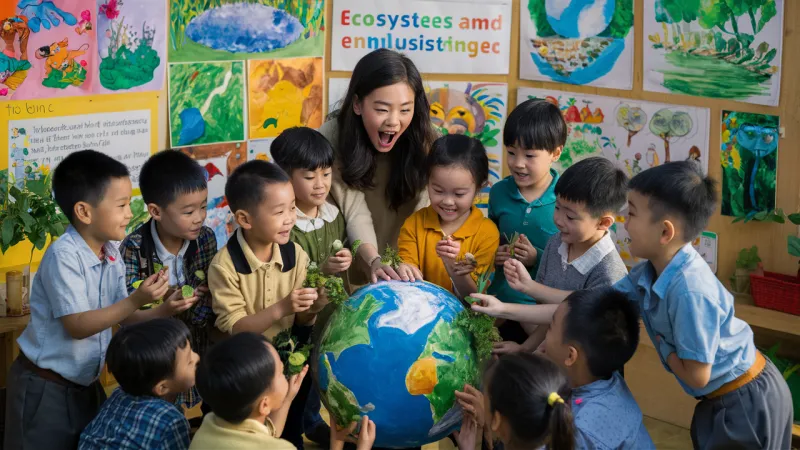
10. Health and Wellness
Lastly, learning about health and wellness is very important for children to promote mental and physical well-being. Learning health basics helps them imbibe lifelong habits that will prevent chronic diseases like diabetes and hypertension. Mental and physical fitness are interlinked- a healthy body is connected to a healthy mind and vice versa.
Being physically fit will improve the energy levels and academic performance of kids and minimize the risk of diseases such as obesity. Mental fitness will boost emotional regulation, improve cognitive function and help manage stress which are vital for child learning and development.
Teaching kids basic first aid skills will also let them respond to emergencies with confidence. It will make them more aware of health and safety and instill a sense of responsibility in them.
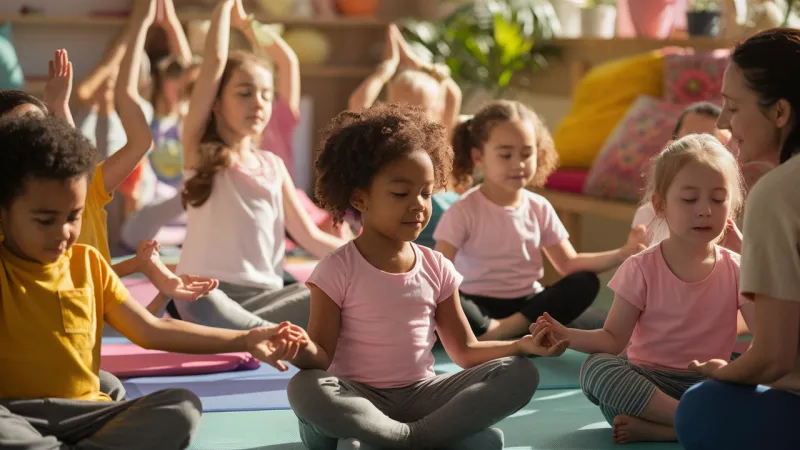
Importance of exercise and nutrition
Encouraging regular exercise will strengthen the kid's muscles and bones, improve cardiovascular health and boost mood and mental well-being. It will also help them maintain a healthy weight and develop motor skills and coordination.
Learning about balanced diets or proper nutrition will help them to make healthier food choices that will provide them with nutrients vital for their bodies and minds to function properly.
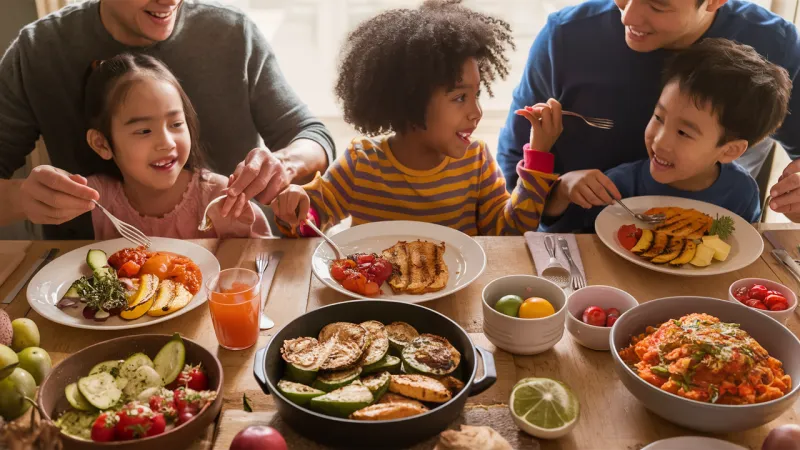
Best ways to promote a healthy lifestyle
Some of the useful ways to promote a healthy lifestyle among children are:
Active play and sports: Motivating children to take part in daily physical activities, for example, sports, dance, will make exercise fun and develop social skills and team work in them.
Healthy eating habits: Introducing a variety of healthy foods during meals and involving children in meal preparation and planning will teach them about the benefits of fruits, vegetables, whole grains, etc. This, in turn, will lead to good eating habits.
Mindfulness practices: Including mindfulness exercises in their daily routines like yoga, deep breathing or meditation will improve concentration and emotional awareness in them.
Top 10 skills for children to learn
Coding
Financial literacy
Critical thinking & problem-solving
Creative writing
Public speaking
Digital literacy
Emotional intelligence
Foreign languages
Environmental awareness
Health & wellness
Life Skills For Students - Frequently Asked Questions (FAQs)
How do I start learning to code as a kid?
Begin with fun, interactive platforms like Scratch or Codeyoung or Code.org that teach basic programming concepts through games and animations. Try simple projects that interest you, like creating a basic game or animating a story. Join coding clubs at school or look for local workshops. Explore free online resources and video tutorials to learn at your own pace. Remember, it's okay to make mistakes - coding is all about problem-solving and learning through trial and error.
What is the best age for a child to learn coding?
There's no one-size-fits-all answer, as children develop at different rates. Many experts suggest introducing basic coding concepts around ages 5-7 through visual programming tools. By 8-10, kids can often handle text-based languages. The key is to gauge the child's interest and readiness. Start with age-appropriate activities and gradually increase complexity. Focus on making it enjoyable rather than pushing too hard too soon.
What are some digital literacy examples for kids
Digital literacy includes various skills crucial in today's tech-driven world. Examples include using search engines properly, identifying credible online sources, and understanding online safety. It also involves creating digital content, like presentations or videos, and basic troubleshooting of devices. Communication skills through email or messaging platforms are important too. Lastly, understanding digital citizenship and responsible online behavior is a vital aspect of digital literacy for kids.
What is the digital literacy program for kids?
A digital literacy program for kids typically aims to develop a range of tech-related skills and knowledge. It might cover topics like basic computer use, internet navigation, and online safety. Many programs incorporate coding lessons, digital art creation, and simple web design. They often focus on critical thinking skills for evaluating online information. Some programs also address cyberbullying prevention and responsible social media use. The goal is to prepare children for a digital future while developing creativity and problem-solving abilities.
Comments
Your comment has been submitted